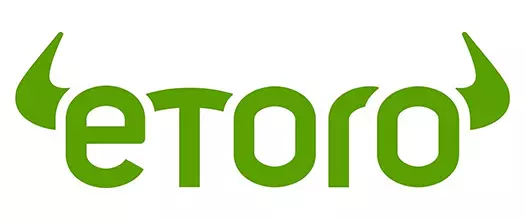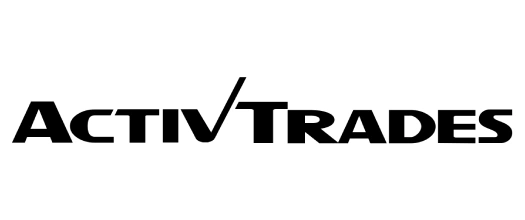UK trading platforms increasingly recognise the importance of convenience and security when moving funds into and out of trading accounts. Many leading FCA-regulated brokers now accept bank transfers or direct debits, enabling clients to transfer funds seamlessly from their UK bank accounts in GBP. Whether you are trading Forex, CFDs, or shares, this method is often favoured for its familiarity, directness, and enhanced protection against fraud compared with some alternatives.
 eToro
eToro Pepperstone
Pepperstone Eightcap
Eightcap Axi
Axi ActivTrades
ActivTrades IG
IGBelow you can find more information about the best trading platforms with bank transfer or direct debit funding in the UK:
- eToro, licensed by the FCA, supports bank transfers and offers the option to set up direct debits via eToro Money. The minimum deposit requirement for UK customers is £50. Bank transfer deposits may take between 4 and 7 days to process.
- Pepperstone, an FCA-regulated broker, offers a range of fee-free payment options for UK clients, including same-day domestic bank transfer deposits and withdrawals processed within 1 to 2 business days.
- Eightcap, another FCA-regulated broker, supports bank transfers for both deposits and withdrawals with no internal fees for UK clients. Payments via this method are processed within 1 to 5 business days.
- Axi, a broker operating under FCA supervision, offers free domestic and international GBP bank deposits and withdrawals. Transactions are processed in 1 to 3 business days.
- ActivTrades, a broker registered with the FCA, also supports bank transfers for deposits and withdrawals. Deposits are typically processed within the same working day, and withdrawals take 1 business day.
- CMC Markets, an FCA-compliant broker, offers spread betting and CFD trading to UK clients across 12,000 global markets. Bank transfers are available for deposits and withdrawals, ensuring secure and transparent fund handling tailored to UK traders.
- IG, an FCA-authorised broker, provides secure bank transfer options for deposits and withdrawals. They maintain segregated client funds and offer investor protection under the Financial Services Compensation Scheme up to £85,000.
This article explores UK-licensed brokers that accept bank transfers and direct debits, detailing the deposit process, identity verification steps, and any associated fees. We also outline the main factors to consider when selecting a broker, along with the advantages and disadvantages of using these traditional methods for Forex trading. If you’re ready to start trading, we’ve compiled a list of trusted platforms that support bank transfer/direct debit payments for UK-based clients.
Are Bank Transfers / Direct Debits Popular with UK Forex Traders?
Bank transfers and direct debits remain highly popular funding methods among UK Forex traders, valued for their security, transparency, and reliability. Many FCA-regulated brokers offer these options to cater to local preferences, as traders often favour the straightforward nature of moving funds directly between their bank accounts and trading platforms. Though not as instant as e-wallets or cards, bank transfers provide peace of mind with regulated, traceable payments and typically involve no hidden fees.
Direct debits are also appreciated for their convenience, allowing automated, recurring deposits in a controlled manner without the need for manual intervention. For larger transactions, bank transfers are preferred, especially for more experienced traders who are funding substantial accounts. While faster alternatives exist, UK traders often prioritise trust and compliance with FCA regulations, which bank transfers and direct debits comfortably satisfy. This combination of safety, familiarity, and regulatory assurance explains why these traditional methods remain a cornerstone of the UK trading experience.
How to Use Bank Transfers / Direct Debits for Payments at UK Forex Brokers?
Funding your Forex trading account through bank transfers or direct debits is a secure and widely accepted method among UK brokers, offering traders dependable ways to manage their deposits and withdrawals.
Bank Transfers
Using bank transfers to fund your Forex trading account is straightforward and popular among UK traders, especially for larger transactions. To start, log in to your trading account and head to the deposit section. Choose bank transfer as your payment method, then enter the amount you want to deposit. The broker will provide you with its bank details, including IBAN and SWIFT codes, which you’ll use to initiate the transfer via your online banking or by visiting your bank.
It is important to include your trading account number or client reference to ensure the funds are allocated correctly. Processing times typically range from 1 to 5 business days, depending on the banks involved. Withdrawals via bank transfer follow a similar process but may take longer due to verification and approval by the broker, usually 24 to 48 hours before funds are sent to your account.
Direct Debits
Direct debits provide an automatic payment option for UK Forex traders who want to regularly fund their accounts without manually initiating transfers each time. After linking your bank account to your trading platform and authorising the direct debit mandate, payments can be scheduled to debit your account automatically at agreed intervals.
This method offers convenience and control, reducing the chance of missed payments and easing cash-flow management. However, direct debits typically have limits set by both the broker and your bank, so it is essential to confirm these details before use. Direct debit payments are subject to regulation and protected under the UK’s Direct Debit Guarantee scheme, adding an extra layer of security for traders.
Mandatory KYC Procedures for Bank Transfer / Direct Debit Users at UK Forex Brokers?
Know Your Customer (KYC) procedures are a mandatory part of the trading process at UK Forex brokers, especially for clients using bank transfers or direct debits. These measures help brokers comply with anti-money-laundering (AML) laws and prevent illegal activities such as fraud and terrorism financing. Before processing deposits or withdrawals, brokers require clients to verify their identity through official documents.
The KYC verification process at UK Forex brokers typically involves three main steps:
- First, traders must submit government-issued identification documents, such as a passport or driving licence, to verify their identity.
- Second, proof of address is required, often through recent utility bills or bank statements, to confirm where the client resides.
- Third, additional documents may be requested, especially for larger transactions, including proof of income or the source of funds.
These steps ensure compliance with anti-money-laundering regulations, protect both brokers and clients, and enable smooth processing of bank transfers and direct debits. Client verification must be completed before any withdrawal requests can be processed, which helps maintain the security and integrity of the trading environment.
The Financial Conduct Authority (FCA) enforces these KYC requirements in the UK, requiring brokers to adopt a risk-based approach to customer due diligence—focusing on verifying identity, assessing the purpose of the business relationship, and conducting ongoing monitoring. When using bank transfers or direct debits, UK traders benefit from additional safeguards, including regulatory protection through schemes such as the Direct Debit Guarantee.
In practice, KYC completion might involve uploading scanned documents or using digital verification tools with biometric checks. While these measures add some steps for users, they ensure a safer, more transparent process and protect both brokers and traders from financial-crime risks. Adhering to KYC procedures enables smooth and compliant bank transfer and direct debit transactions on regulated UK Forex platforms.
Costs of Using Bank Transfers / Direct Debits at UK Brokers
Using bank transfers and direct debits to fund your trading account with UK brokers generally involves low costs, making them attractive funding methods. Most FCA-regulated brokers do not charge fees for domestic bank transfers, but fees may apply for international transfers or currency conversions. Some brokers set fixed fees for withdrawals, typically ranging from £10 to £50 depending on the amount and broker policy.
Minimum deposit requirements vary among brokers but commonly start around £100 or equivalent, ensuring the method suits both casual and serious traders. Deposit and withdrawal limits for bank transfers and direct debits are usually higher than those for cards or e-wallets, accommodating large transactions. While there is no universal cap, many brokers allow deposits and withdrawals up to £1 million or more, aiding high-volume traders.
Traders should always check the broker’s specific fee schedule and limits before choosing a payment method to avoid unexpected costs and ensure smooth transactions. Overall, bank transfers and direct debits combine security, convenience, and competitive cost structures for UK trading clients.
Advantages and Disadvantages of Using Bank Transfers / Direct Debits at Online Brokers
Using bank transfers and direct debits to fund online trading accounts comes with several notable advantages and some disadvantages. These payment methods are trusted for their security and convenience, but may not always be the fastest or most flexible options. Understanding their pros and cons helps traders make informed decisions about how to manage their funds.
Advantages:
- High security with multiple verification layers. Bank transfers and direct debits use bank-grade encryption and identity checks to protect funds.
- Suitable for large transactions. They often have higher limits than cards or e-wallets, making them ideal for substantial deposits.
- Generally low or no fees. Most UK brokers and banks do not charge for domestic transfers or direct debits, reducing costs.
- Automated payments via direct debit. This simplifies recurring deposits and reduces manual effort to fund accounts regularly.
- Clear, traceable records. Both methods generate transparent transaction histories, aiding compliance and personal accounting.
Disadvantages:
- Slower processing times. Bank transfers can take 1-5 business days to clear, delaying fund availability.
- Set-up complexity. Initiating transfers requires entering accurate banking details, which can be prone to human error.
- Risk of failed direct debits. Payments can be rejected if insufficient funds are in the bank account, causing failed transactions.
- Limited flexibility for urgent trades. Unlike instant e-wallets or cards, these methods may not support same-day funding.
- Hesitancy to share bank details online. Some traders feel uncomfortable providing direct banking information due to privacy concerns.
These factors should be balanced based on individual preferences, the amount and frequency of trading activity, and the importance of speed versus security.
How to Pick a Reliable Bank Transfer / Direct Debit Broker in the UK?
When choosing a broker in the UK that accepts bank transfers or direct debits, several criteria should be carefully considered to ensure security, transparency, and a quality trading experience.
- FCA regulation: Always prioritise brokers authorised and regulated by the Financial Conduct Authority (FCA). This ensures they comply with strict standards for client-fund protection, transparency, and fair trading practices. FCA-regulated brokers also participate in the Financial Services Compensation Scheme, offering protection up to £85,000.
- Trustpilot rating: Customer reviews on platforms like Trustpilot reveal real user experiences. High ratings and positive feedback indicate reliable service, efficient transaction processing, and good customer support.
- Fees and commissions: Evaluate the broker’s fee structure closely, including deposit and withdrawal fees, inactivity fees, spreads, commissions, and overnight fees. Low or no fees on bank transfers and direct debits enhance profitability for traders by reducing unnecessary costs.
- Trading platforms supported: A reliable broker should offer robust, user-friendly trading platforms compatible with your preferred devices. Popular platforms include MetaTrader 4/5, TradingView, cTrader, and proprietary software that support seamless order execution and fund management.
- Customer support: Effective and responsive customer service is essential, especially when dealing with payment issues. Look for brokers offering multiple support channels, including live chat, phone, and email, and availability during UK trading hours.
By considering these factors, UK traders can confidently select brokers that offer safe and efficient bank transfer or direct debit payment options tailored to their trading needs.
FAQ
Below are five FAQs about trading platforms accepting Bank Transfer / Direct Debit, covering key areas of interest for UK traders:
Are bank transfers and direct debits safe for funding UK trading accounts?
Yes, both methods are highly secure, backed by UK banking protections and regulations like the Direct Debit Guarantee, ensuring your funds are protected when dealing with FCA-regulated brokers.
How long do bank transfers and direct debits take to process?
Bank transfers usually take 1 to 5 business days to clear, while direct debits are typically collected on scheduled dates and can take a day or two to reflect in your trading account.
Do UK brokers charge fees for bank transfer or direct debit deposits and withdrawals?
Most FCA-regulated brokers do not charge fees on domestic bank transfers or direct debits, though your own bank may levy a small fee for outgoing payments in some cases.
Can I set up automatic trading account top-ups using direct debit?
Some UK brokers, such as eToro, offer the option to set up recurring direct debits, allowing you to automate regular deposits and maintain consistent funding without manual intervention.
What documents are required for KYC when funding via bank transfer or direct debit?
You will need to complete standard KYC by submitting a valid ID (passport or driving licence) and proof of address (a recent utility bill or bank statement) as part of FCA regulations before funds can be processed.